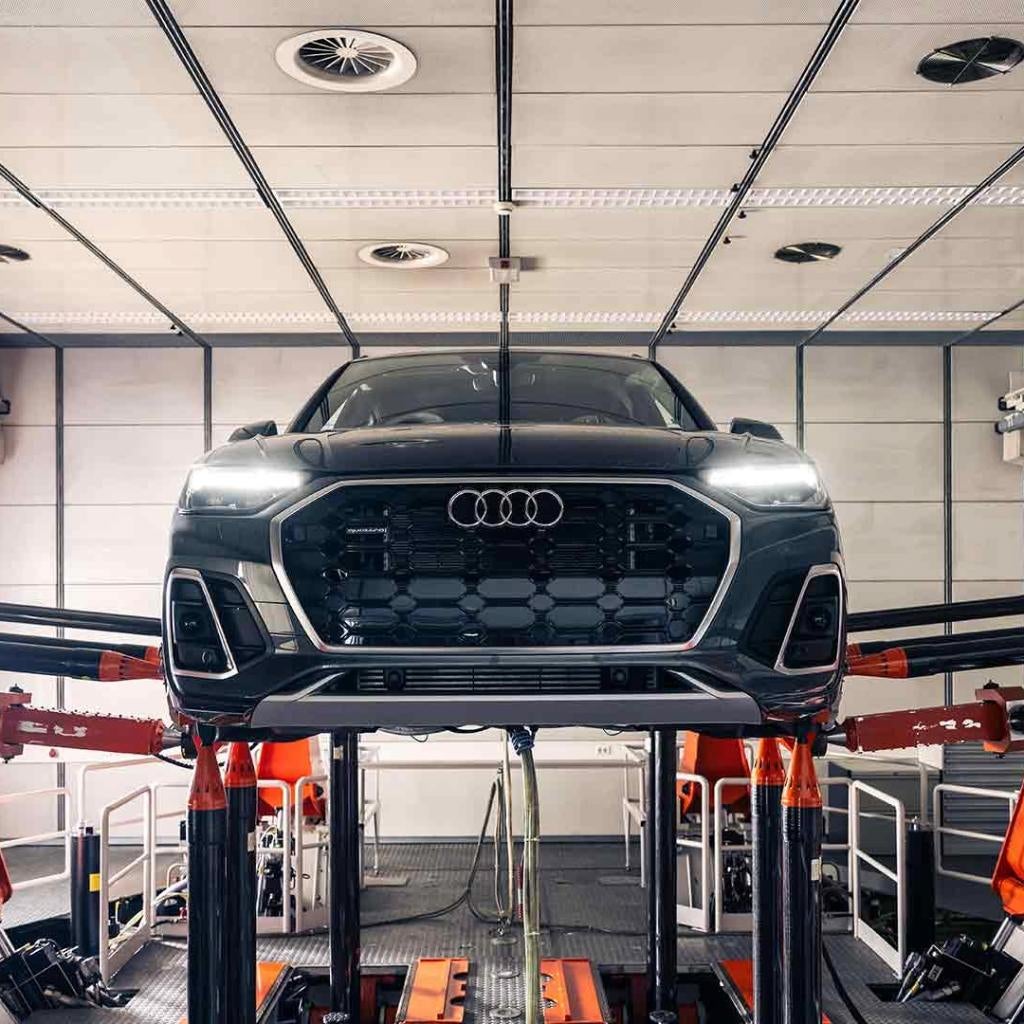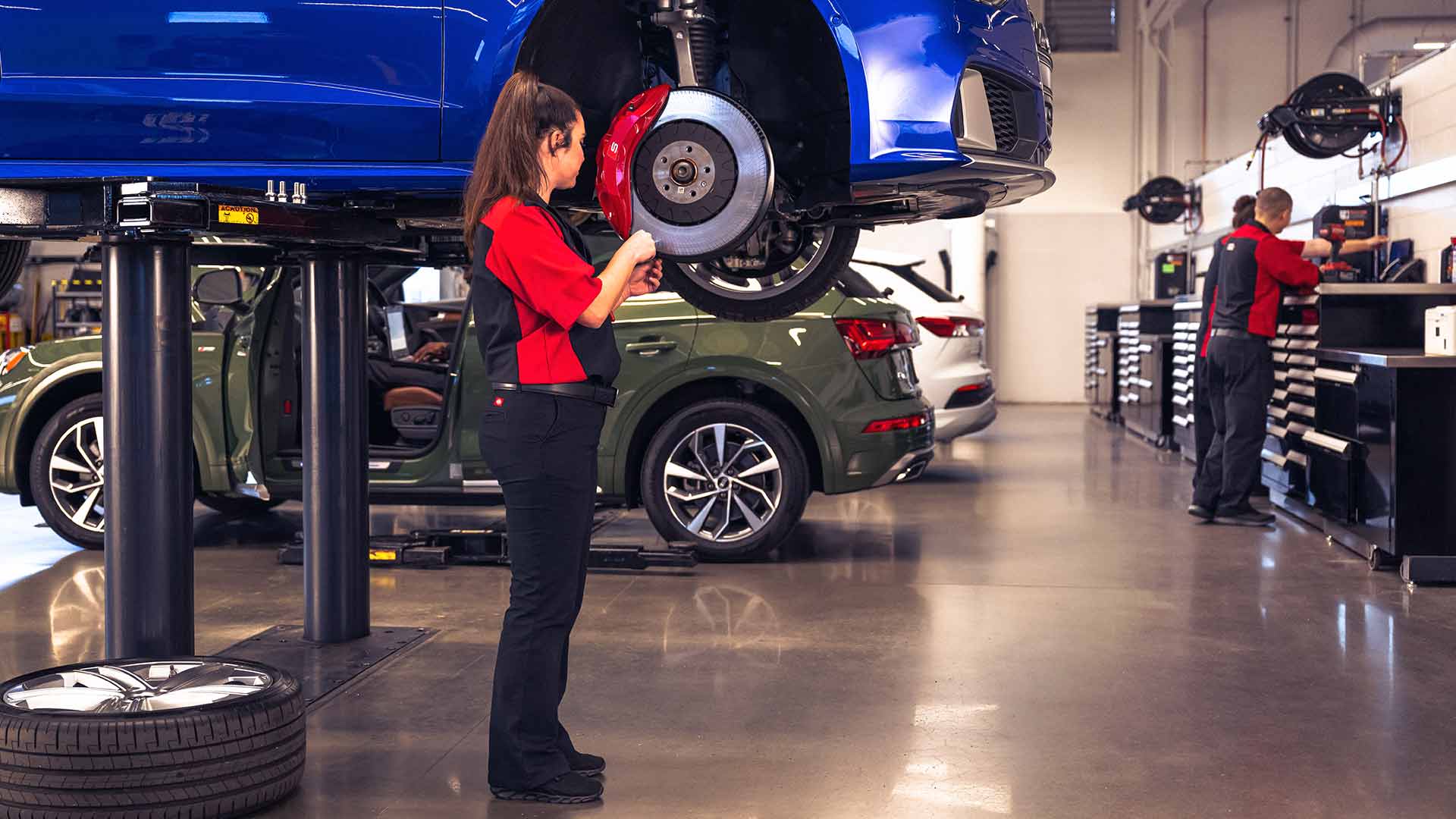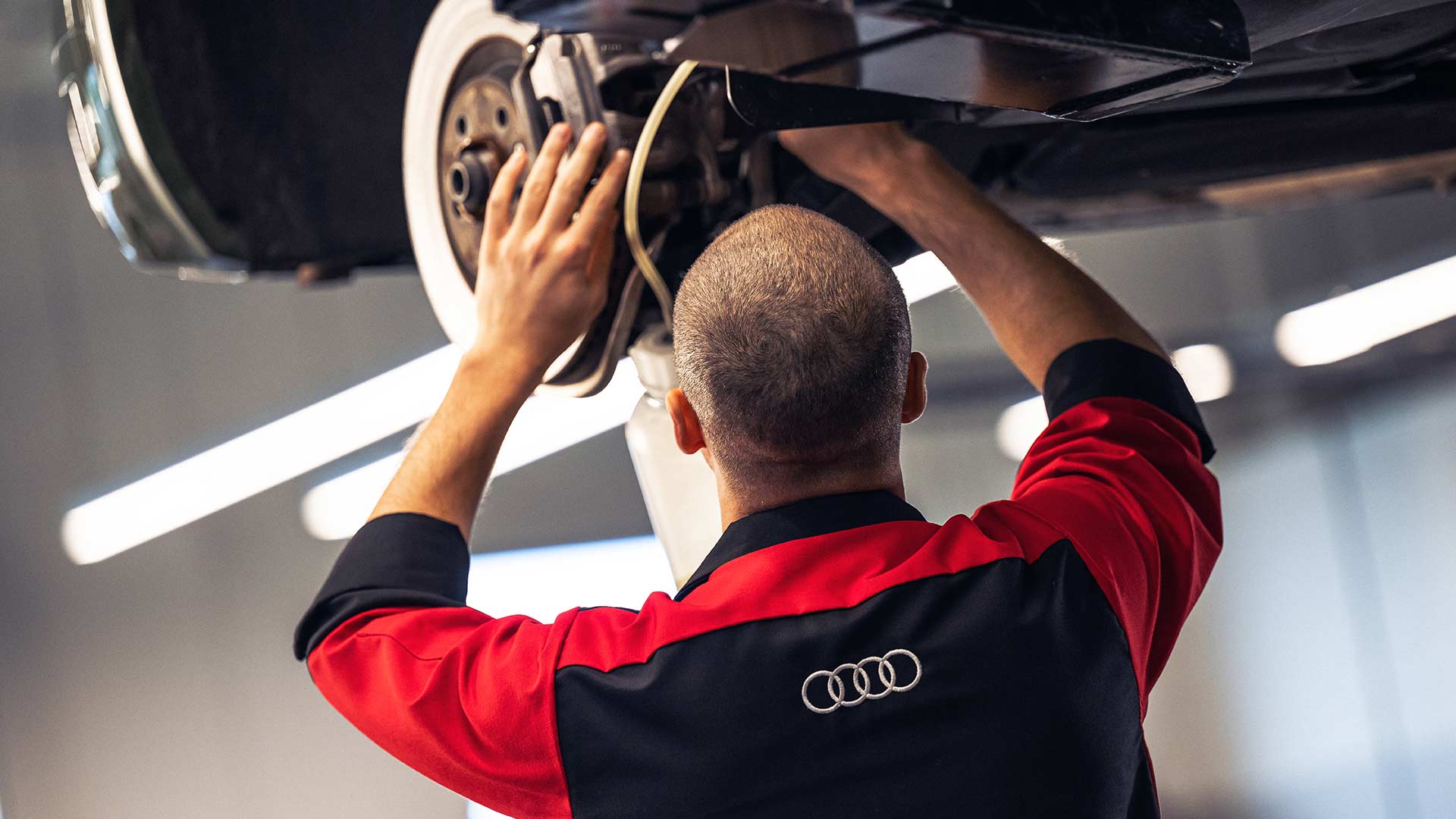
Service
Treat Your Audi Right at Audi Stratham
Schedule Service
Convenience is at the forefront of our service offerings. Our user-friendly online platform enables you to schedule service appointments at your convenience. With a few clicks, you can choose the date and time that work best for you, ensuring minimal disruption to your busy schedule. Our streamlined process reflects our commitment to making your Audi service experience as smooth and hassle-free as possible.
Opening Hours
Monday: 9:00am - 7:00pm
Tuesday: 9:00am - 7:00pm
Wednesday: 9:00am - 7:00pm
Thursday: 9:00am - 7:00pm
Friday: 9:00am - 6:00pm
Saturday: 9:00am - 6:00pm
Sunday: Closed
Monday: 7:30am - 5:30pm
Tuesday: 7:30am - 5:30pm
Wednesday: 7:30am - 5:30pm
Thursday: 7:30am - 5:30pm
Friday: 7:30am - 5:30pm
Saturday: 8:00am - 4:00pm
Sunday: Closed
Monday: 7:30am - 5:30pm
Tuesday: 7:30am - 5:30pm
Wednesday: 7:30am - 5:30pm
Thursday: 7:30am - 5:30pm
Friday: 7:30am - 5:30pm
Saturday: 8:00am - 4:00pm
Sunday: Closed


